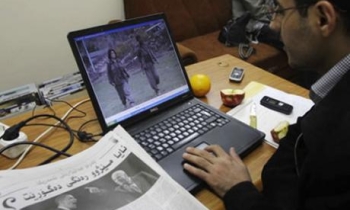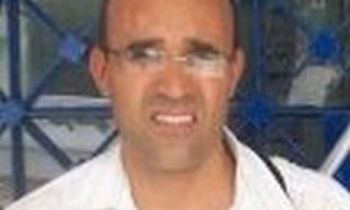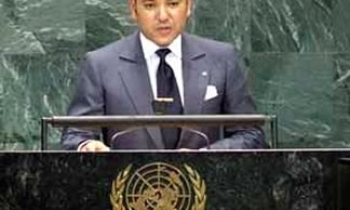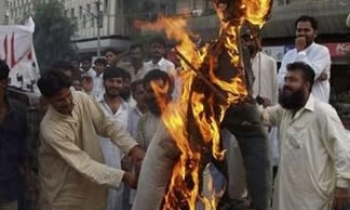A Franco-Canadian journalist who went missing in Ivory Coast three years ago was abducted and murdered, a man claiming to be a witness told French television in an interview to be aired Thursday. The independent journalist, Guy-Andre Kieffer, disappeared in Abidjan in April 2004 while investigating corruption in Ivory Coast's important cocoa industry. The French investigation has concluded that officials close to President Laurent Gbagbo were involved.

Agence France_presse (AFP) reported that public broadcaster France 3 interviewed a man, Berte Seydou, who claims he was a driver in the commando which abducted Kieffer in the parking lot of an Abidjan supermarket. Seydou said Kieffer was first taken to an Abidjan villa where he spent 30 minutes. Kieffer "was stressed, like someone in danger," Seydou said.
He was then taken to the presidential palace where he spent two days and two nights. Subsequently his captors took him to a farm, "a secret place for executions", Seydou said. The head of the commando, Jean-Tony Oulai, "gave a sign with his pistol and two members (of the commando) machine-gunned" Kieffer, Seydou said.
French police believe his claims are credible, France 3 said. A source close to the French investigation said detectives believed those responsible were members of the army or a militia friendly to President Laurent Gbagbo.
Oulai was in January 2006 charged in France with kidnapping Kieffer, but was later set free.
The last person to have seen Kieffer alive was Michel Legre, the brother-in-law of Ivorian President Laurent Gbagbo. Legre was indicted by Ivorian authorities in May 2004 on kidnapping charges, but was later released.
In testimony to a French judge who travelled to Ivory Coast to investigate the case, Legre implicated senior members of Gbagbo's entourage.
French President Nicolas Sarkozy has promised the family of Kieffer that he would help to try to solve the mystery of his disappearance. President Sarkozy made his promise Thursday when he received Kieffer’s wife, Osange Silou-Kieffer, his daughter, Canelle Kieffer, his brothers Bernard and Eric Kieffer, and his nephew, David-Alexandre Kieffer, at the Elysée Palace in Paris.
Osange Silou-Kieffer, according to Reporters sans Frontières (RSF), said later that she was “delighted†by Sarkozy’s pledge. “We had been requesting a meeting with the French president to talk about the case for three years,†she said. “We finally got a meeting, but above all we have obtained commitments from him as regards the case. This gives us hope that justice will be done.â€
Sarkozy said his government would give the resources they need to do their job, above all, to interview all the witnesses and suspected perpetrators of Kieffer’s abduction and presumed murder. He said he would ask the French ambassador in Côte d’Ivoire to put all his efforts into this “important†case.

The family asked the French government to intervene with the Ivorian authorities to get the obstacles lifted, above all so that a leading suspect, Legré, can be questioned by the judicial authorities in France. On leaving the Elysée Palace, Silou-Kieffer said she hoped Sarkozy would remind President Laurent Gbagbo of the promises made to the family and Reporters Without Borders to shed light on all aspects of the case.
An agronomy graduate who wrote about commodities, Kieffer went missing on April 16, 2004 in Abidjan, where he had been based since early 2002 working as freelancer for La lettre du Continent and several Ivorian newspapers. Before going to Côte d’Ivoire, he had worked for the French business daily La Tribune since 1984. Legré has admitted seeing Kieffer in the parking lot of an Abidjan shopping centre on the day of his disappearance.
An investigation into the case by French judges Patrick Ramaël and Emmanuelle Ducos has established that, at the time of his disappearance, Kieffer was investigating the embezzlement of funds in the coffee and cacao markets in Côte d’Ivoire, the world’s biggest producer of cocao, and they suspect he may have been kidnapped and then presumably killed by persons close to the president.
Ramaël formally opened an investigation into Legré on October 21, 2004 on suspicion of “abducting and holding†Kieffer. On December 13, 2004, he requested Legré’s transfer to France for two months for questioning. This request has never been met. Legré was held in an Abidjan detention centre for a year and half before being granted a provisional release in October 2005.
Jean-Tony Oulaï, an Ivorian citizen who claims to have been a captain in the Ivorian army, was also formally placed under investigation in France in January 2006 on suspicion of “abducting and holding†Kieffer. He is subject to French judicial control. Some witnesses allege that he supervised Kieffer’s abduction.









